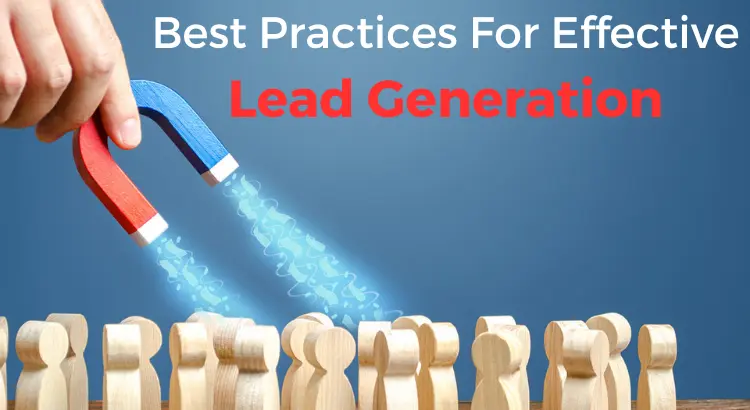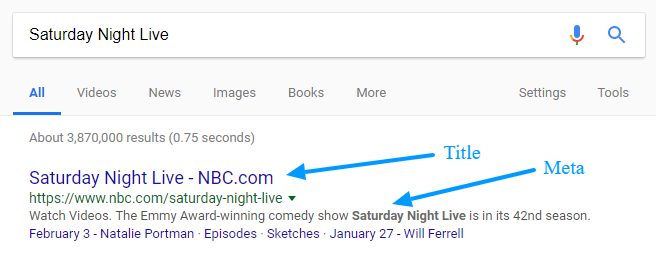Lead generation is an integral part of any business’s success. With leads, it’s possible to generate sales and grow a business. However, knowing where to start when it comes to lead generation can be challenging, as understanding the best strategies and practices for your particular industry can take time and dedication.
With that being said, this article will look at some of the most effective techniques for generating leads that’ll help you increase sales and improve your bottom line.

What is Lead Generation?
Lead generation identifies potential customers and collects their contact information for marketing purposes. It involves creating awareness about a product or service, stimulating interest among a target audience, and capturing those leads to nurture them further down the sales funnel.
It can involve several methods, such as paid ads, content creation, email campaigns, and direct outreach. When done correctly, lead generation helps businesses reach qualified buyers faster and more efficiently than ever before.
Hence, it’d be best to consider engaging the services of B2B lead generation companies and the like to gain better insights into customer needs and behaviors and create highly targeted offers that provide added value to prospects and increase conversions.
Best Practices For Effective Lead Generation
Creating a successful lead generation strategy can be daunting, but it doesn’t have to be. With careful planning and execution, you’ll soon see results.

Define Your Target Audience
Knowing who you’re trying to reach is the key to establishing an effective lead-generation strategy.
Defining your target audience can be complex, requiring time and knowledge of market trends to identify the right customers for your business. As such, taking the necessary steps to ensure that all areas of potential customer interaction have been considered when crafting your message and targeting strategies is essential.
Understanding what makes up your ideal customer profile will help you create campaigns that effectively engage them and drive conversions.
Conduct Market Research
Now that you know your ideal customers, the next step is conducting market research. This means taking a deeper dive into your customer demographic: their age range, income bracket, interests, hobbies, etc.
Here are some key things to consider when doing market research:
- Investigate the competition
- Analyze current trends in the industry
- Monitor user feedback
- Track online conversations
With this information, you’ll be better positioned to create content that truly resonates with potential customers and drive lead generation success.
Set Clear Goals And Objectives
Setting clear goals and objectives is essential to effective lead generation. Thus, it’d be best to decide what outcomes you want from the generated leads, whether it be a certain number of sales or increased market share. This will help you determine which activities should be prioritized to reach your desired results.

Once you’ve established your goals and objectives, start developing an action plan with measurable targets that can give you insights into how successful your lead generation efforts are. Regularly track progress so that any necessary adjustments can be made for maximum efficiency and effectiveness.
Choose The Right Lead Generation Channels
Now, it’s time to decide which lead generation channels are the best fit for achieving your goals and objectives. You can choose from email marketing, search engine optimization (SEO), paid advertising, content marketing, referrals, and more.
Investigate each channel thoroughly to determine its potential return on investment (ROI) before committing resources to it. Also, consider how much effort will be required to execute each strategy; if necessary, enlist outside help or outsource parts of the process.

Develop A Content Marketing Strategy
Creating a robust content marketing strategy is an important step in effective lead generation. It allows you to create targeted and engaging content that’ll capture the attention of potential leads and drive them through your sales funnel. However, as with any strategy, using the right tools is necessary in this aspect.
Implement A Lead Scoring System
Lead scoring allows you to assign numerical values to each action prospect completes on their journey through the sales funnel. By doing this, businesses can prioritize warm leads they should target more effectively while also understanding the best strategies. This helps marketers determine whether they need to change their approach and adjust their campaigns accordingly.
How To Create A Compelling Lead Magnet?
Creating a compelling lead magnet is essential for successful lead generation. To do so, it’s crucial to identify the needs of your target audience and fulfill their desires in the following ways:
- Build A Strong Landing Page
Your landing page makes up a huge part of the first impression potential customers will have of your business, so it’s essential to ensure you create a strong and compelling one. It should be simple yet engaging, with all relevant information communicated.
Focus on having an impactful headline, concise copy, a visually pleasing design, and easy-to-follow forms for leads to fill out.

- Leverage Social Media
Social media should be used to extend your website and drive traffic back to it.
Using platforms such as Facebook, Instagram, or Twitter allows you to target your desired audience with ads, helping you generate leads quickly and cost-effectively. In addition, you can create custom content tailored to the type of consumers you’re trying to reach to grab their attention and encourage them to take action, like visiting your website or signing up for promotional emails.
Additionally, running contests on social media gives consumers incentives to engage with your brand while providing valuable information about potential customers, which can further refine future campaigns.
- Run Effective Email Campaigns
Email campaigns are an effective way to generate leads. They allow you to reach and engage potential customers directly while also providing valuable insights into the effectiveness of your efforts. With thoughtful consideration given to content and audience, you can ensure that every campaign produces quality leads.
Also Read: Personalized Email: The Key to a Successful Email Campaign
- Use SEO To Drive Lead Generation
It’s also important to consider how SEO can further boost your efforts. Using targeted keywords and phrases in the content of your website or blog posts can help potential customers find you more quickly when searching for products and services related to yours.
Additionally, creating backlinks from other trusted sites can increase your ranking on search engines such as Google, thus boosting visibility and helping bring even more leads your way.
Optimizing page titles and URLs, writing descriptive meta tags, using alt text for images, adding internal links throughout your site, and engaging in social media campaigns will ensure a successful lead gen campaign.

- Implement Effective Lead Nurturing
Lead nurturing is a vital step in the lead generation process. It’s all about building relationships with potential customers and making sure that your business stays on top of their minds when they’re ready to buy.
Furthermore, utilize analytics tools to track key metrics such as open rates, click-through rates, etc., so you know how effective your campaigns are. By taking these steps, you’ll be able to ensure that your leads have everything they need to make informed decisions about buying your products or services.
- Measure Lead Generation Success
Measuring the success of your lead generation efforts is essential for understanding what works and what doesn’t. It’s also a meaningful way to identify opportunities for improvement so that you can get even better results in future campaigns.
Several metrics should be used when evaluating lead generation performance, including website visits, form submissions, cost per lead (CPL), and conversion rate. By tracking these metrics over time, you’ll gain insight into which strategies have been most successful, allowing you to optimize your approach accordingly.
Conclusion
Lead generation is a critical component of any successful business. With an effective lead generation strategy, you can ensure that your target audience knows about your products or services and is interested in learning more.
By taking the time to research your ideal customer, craft compelling emails, optimize SEO, and nurture leads through each step of their journey, you’ll be able to maximize conversions and continue to grow your business. If done correctly, lead generation strategies will result in long-term success for your organization.